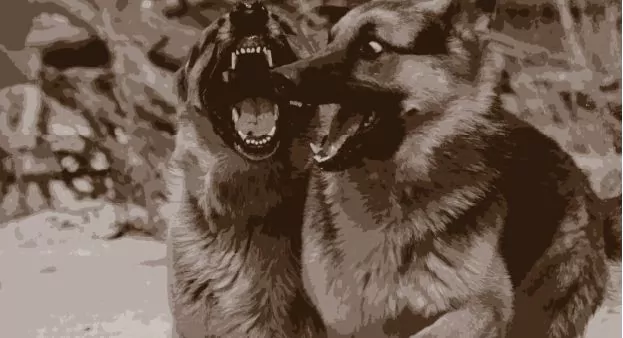
Reactivity has become a buzzword in the modern conversation around dogs and their behavioral issues. Reactivity can mean different things to different people but essentially, we’re talking about an exaggerated, stressed, and potentially aggressive response to a stimulus that a dog meets – people, children, animals, particularly other dogs or critters such as squirrels, as well as sounds or noises.
If you’ve been following me for some time, you know that I look to way of life first as the root cause for any behavioral issues we could be dealing with, reactivity included. Here are three reasons why dogs exhibit reactivity and how the Way of Life Method interprets and deals with these scenarios.
- Poor Drive Management
Let’s start with one obvious reason for reactivity: we have a dog that’s full of drive and energy, possessed with a desire to work and achieve, living a life where these drives are not managed properly. In one scenario, the dog is not challenged enough in their way of life, leading instead a dull life as a pet.
- Solution: For this dog, reactivity is a symptom of frustrated natural desires and tendencies. Finding healthy outlets for these drives, including researching suitable sports or adventures you could both enjoy, is recommended.
The other scenario is a dog that is challenged through sport and adventures but poorly managed outside of these spaces, resulting in reactivity.
- Solution: For this dog, the strengthening of drives and added stimulation through a sport lifestyle means owners have an even greater responsibility to rest the dog and minimize other sources of pressure, lest that energy translate into reactivity.
- Rapid Integration and Exposure
Another reason for reactivity is the speed with which we integrate new dogs, particularly new rescues who are deprived of the chance to decompress and recuperate. Yet again the culture sets us up to fail because we celebrate how quickly we got the new dog to play with the existing dog, not realizing that no one is quite ready for the introduction. I’ve often seen existing dogs deteriorate following such rapid integration only to have their behavior construed as “jealousy.” Meanwhile, the dogs are not acting up because they are jealous but because they’re telling us we’re moving too quickly. Soon enough, we have reactivity or other dysfunctional behaviors in both new and existing dogs.
- Solution: The key here is to slow the pace of integration, return to foundations and assume we just got the new dog. We spend a little time building what I call primordial socialization between us and the new dog before widening their circle.
- Unhealthy Emotional Relating
A third reason for reactivity is the unhealthy and unhelpful emotional relating that I see many dog owners impose on their dogs – extreme feelings and displays of love and affection towards their reactive dog. “How can there be anything wrong with loving my dog?” they ask. There is absolutely nothing wrong with loving our dogs – love is why we’re all here. But too often, we bring a new dog home and shower them with our approval. We have dogs with severe issues but we still love on them and include them. Meanwhile, the dogs construe our feelings as permission and validation for their current attitude and behavior.
- Solution: When dealing with reactivity or any behavior issue, we need to look at our feelings and how we express them as part of the problem and therefore part of the solution. In the Foundations stage where we are getting a start on fixing problems, I ask my clients to keep a more neutral and professional stance.